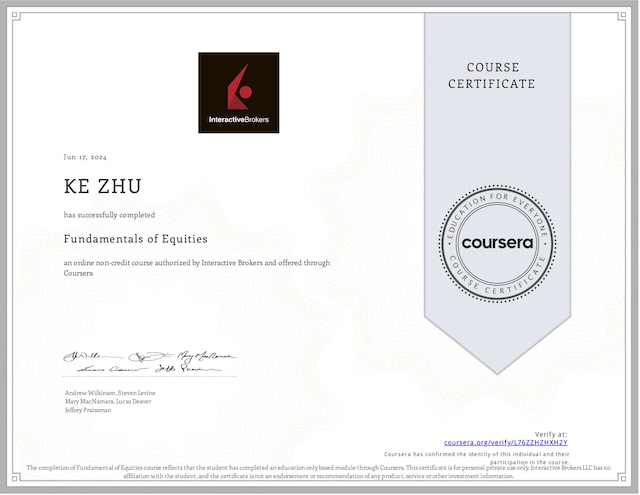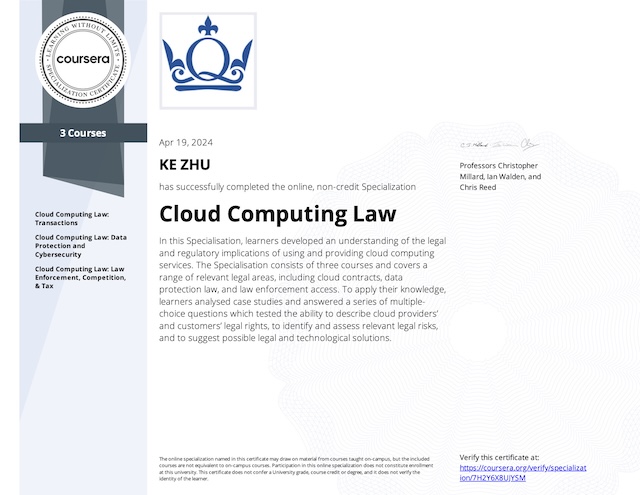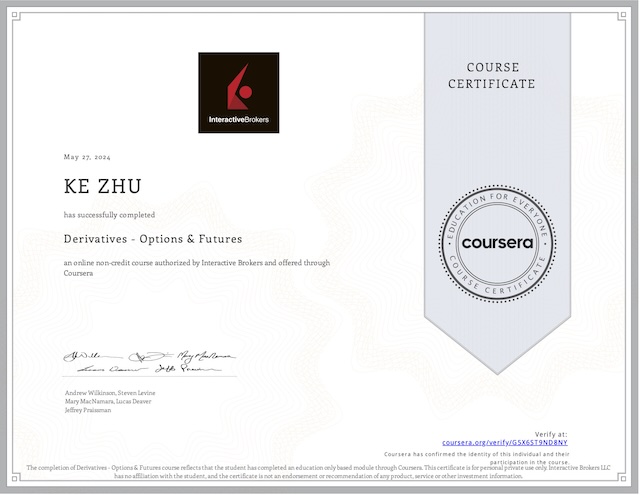Deductions are essentially the tax word for expense that can reduce the tax base. Deductions are disallowed unless a specific provision permits them. Deductibility depends on “legislative grace”. That is what Congress has decided to legislatively decree what is an allowable expense that can reduce the tax base.
As a result, deductions are defined quite narrowly. Taxpayer has burden of proof for substantiating all deductions on the tax return. Adequate records must be maintained.
Deductions for AGI (Adjusted Gross Income)
These are “above the line” deductions subtracted from the gross income to then yield Adjusted Gross Income (AGI), which is very important because it determines the amount of many other deductions and tax credits that can be claimed.
These expenses can be deducted even if a taxpayer does not keep track of itemized deductions but just takes simple standard deduction. If a taxpayer does itemize, then the deductions for AGI will determine the size of some of those itemized deductions.
Deductions for AGI can be essentially placed into two broad categories:
- Business-related activities
- Deductions subsidizing specific activities
IRC Section 212 allows some expenses to be deductible, for AGI:
- Expenses related to rent and royalty income
- Expenses paid in connection with the determination, collection, or refund of taxes related to the income of sole proprietorships, rents and royalties, or farming operations.
On the tax return, the business-related expenses show up in:
| Schedule C | Profit or loss from business of sole proprietorship. |
| Schedule E | Supplemental income and loss other activities. |
| Schedule F | Profit or loss from farming. |
What gets reported on Schedule C, E and F is income and losses from pass-through businesses.
Deductions from AGI
After getting AGI, taxpayer has choice of the greater of either:
- Itemized deductions (also known as the “from AGI deductions”), or
- Standard deduction.
Itemized deductions include medical expenses, state and local taxes, contributions to qualified charities, certain personal interest expenses, or personal casualty losses in federally declared disaster areas. If the taxpayer selects to deduct itemized deductions, he or she has to report them on Schedule A of the Form 1040.
Trade or Business
There shall be allowed as a deduction all the ordinary and necessary expenses paid or incurred during the taxable year in carrying on a trade or business…
IRC Section 162(a)
Regulations suggest trade or business as the activities whose objective is to make a profit. If expenses are incurred in pursuit of profit, then it is more likely a business. If an activity failed to meet for-profit motive, then it is typically a hobby. For sole proprietors that run a business, these trade or business expenses are deductible for AGI, these expenses are NOT from AGI deduction.
An ordinary and necessary expense is deductible using the IRS definition. Ordinary expense is a normal or appropriate expense for the business under the circumstances. Necessary expense is deductible if it’s helpful or conducive to the business activity, but need not be essential or indispensable. Expenses must also be reasonable in amount. Courts have interpreted reasonableness by examining whether an expenditure is extravagant or exorbitant.
There are some statutory limits on deductions:
- The expenses that related to the cost of assets are spread out over time.
- Personal expenses are generally not deductible.
- Expenses relating to tax-exempt income are not deductible.
- Expenses against public policy are not deductible. e.g: fines, bribery, lobby expenditures, or political contributions.
But taxpayers conducting illegal activities can still deduct cost of goods sold and business expenses.
Timing of Deductions
Generally speaking, the timing of deductions is determined by the taxpayers accounting method. Recall that there are 4 accounting methods acceptable to the IRS: cash, accrual, special and hybrid.
Cash Method
Expense generally deducted when paid (with cash / property / services). Current deduction for capital expenditures not allowed.
Prepaid items related to a future tax year are generally NOT deductible in the year of payment. One exception is the 12-month rule: A taxpayer is not required to capitalize amounts paid to create certain rights or benefits that do not extend beyond:
- 12 months after the right or benefit begins
- The end of the tax year after the tax year in which payment is made
Another exception is the tax law restrict use of cash method to small business, farms, personal service corporations, and certain partnership.
Accrual Method
The general rule is that the expenses are deducted when incurred. Two tests must be met for the expense to be deductible under the accrual method:
- All events test. Deduction when all events have occurred to create the taxpayer’s liability, and the amount of liability can be determined with reasonable accuracy.
- Economic performance test. Accrued services / property / use of property that giving rise to the liability can only be deducted when the service / property / use of property has actually been performed, provided or used. There is one exception. If there is a recurring expense, a deduction can be allowed even if there’s no economic performance.
The tax law does not allow a deduction for the “reserves for estimated expenses”, because the economic performance test has not been met.
Non-deductible Business Expenses
First, political contributions (giving money to a politician’s campaign) are not deductible. Lobbying is an effort to influence a politician or public official on a particular issue. Just monitoring and following legislation without an effort to influence is not lobbying. Lobbying expenses are non-deductible. But there is one small exception: De minimis ( ≤ $2000 ) in-house lobbying expenditure.
Any membership dues related to non-lobbying activities of organizations are deductible. A pro-rata approach to allocate the membership dues between the deductible and non-deductible lobbying.
In general, compensation such as wages paid to officers and employees, is a deductible business expense. However there are some limits.
- Compensation paid to shareholder-employees and their relatives of closely held corporations, must be reasonable to be deductible.
- For publicly held corporations, deduction for compensation of CEO, CFO, and three other highest compensated officers is limited to $1 million each. Also known as Section 162(m) limitation.
Investigation of Business
Expenses incurred to determine the feasibility of entering a new business or expanding an existing business. For example: travel, architectural survey, marketing report, professional fees, etc.
If taxpayer is already engaged in the business, expenses are deductible whether or not the business is expanded or another business is acquired. Here the deduction occurs in the year of payments (for a cash method taxpayer) or the year in which the expenses were incurred (for an accrual method taxpayer).
If taxpayer is not engaged in the business, deductibility depends on whether business is entered / acquired:
- If not entered / acquired, expenses are not deductible and not capitalized.
- If entered / acquired, expenses are capitalized; no deduction or amortization.
Taxpayer can elect to immediately deduct $5,000 of the investigation costs in the first year, with the remaining amount to be amortized straight-line 180 months. If the total investigation costs exceed $50,000, then there is a dollar-for-dollar reduction of the $5,000 immediate deduction. By the time the total investigation costs reach $55,000, there is no allowable immediate deduction left.
Hobby
For tax, a hobby is an activity that is not entered into for profit. Hobby income is includible in gross income, just like any other type of revenue from a trade or business. Before 2018, the hobby loss rules traded a hobby expenses as being limited to the extent of hobby income (limited by 2% of AGI floor), and the hobby expenses were only deductible as an itemized deduction. These rules will be in force again in 2026.
But from 2018 through 2025, there is a bad new for hobbyists. The tax cuts and jobs act eliminated all miscellaneous itemized deductions subject to the 2% of AGI floor. So, most hobby expenses are basically non-deductible. But, if your hobby involves manufacturing, merchandizing or mining, then your gross income that you have to report from your hobby, includes a deduction for your cost of goods sold. Cost of goods sold is the direct materials and labor cost that go into your product.
In contrast, if it is a trade or business, taxpayers can deduct all their expenses (not just cost of goods sold), even their losses if they exceed the gross income, as a “for AGI” deduction.
There are 9 factors to assist in making the determination that when an activity is an hobby or a trade / business. We look all 9 factors as part of a qualitative analysis that consider each factor and the relative weight of each factor.
- In a business-like manner? (Separate bank account, adequate accounting records, written business plan, budgets, etc).
- Expertise of the taxpayer.
- Time and effort.
- Expect asset appreciation. (Will the activity be worth more after the taxpayer has engaged in it).
- Taxpayers previous success in similar activities.
- History of income or losses from the activity.
- What is the relation of profits earned to losses incurred?
- Financial status of taxpayer.
- Elements of personal pleasure or recreation from this activity.
If activity has profit for 3 of 5 years (2 of 7 if involving horses), the activity is presumed to be a trade or business rather than personal hobby.
IRC Section 183(d)
This presumption is rebuttable, IRS can challenge the presumption by looking to the factors. But the burden has been shifted to IRS to prove the activity is a hobby.
Rental
In general, there is no deduction for personal expenditures, in particular, personal expenses related to the home are also not deductible. If you use a property for personal purposes, the only personal types of expenses that are deductible are limited to what’s available on Schedule A, which is related to deducting a mortgage interest and real estate taxes. But if you owned a property and rented it out, we would report the income and expenses on Schedule E, in this case the expenses to maintaining the property would be deductible.
Generally speaking, there are 3 possible treatments for property expenses:
| Primarily Personal Use | Rented ≤ 14 days. No gross income recognized from rentals. No rental expenditures. Deductible expenditures are only home mortgage interest and property taxes. |
| Personal / Rental Use | Rented > 14 days, and personal use exceeds the greater of: 1) 14 days, or 2) 10% of the total rental days Treated similar to hobby. Expenses are deductible to the extent of rental income using the same tier structure. |
| Primarily Rental Use | Rented > 14 days, and is not used for personal purposes more than the greater of 1) 14 days, or 2) 10% of the total rental days. Can deduct all expenses add located to rental use, even if a loss. |
Personal / Rental Use
For the case “Personal / Rental Use”, all expenses must first be classified into three tiers:
- Those otherwise deductible. (Property taxes, etc.)
- Personal non-rental portion: “from AGI” deductions, if taxpayer itemize.
- Expenses do not affect adjusted basis. (Maintenance).
- Expenses DO affect adjusted basis. (Depreciation).
The tier 1, 2, 3 expenses that related to the rental activity are “for AGI” deductions, against rental income.
How to allocate expenses between rental and personal use?
| Tier 1 | 1. IRS method: rental days / total days used. 2. Bolton v. Commiissioner method: rental days / 365 |
| Tier 2 and 3 | IRS method |
The process of calculation is that the tier 1, 2, and 3 expenses are in turn subtracted from the rental gross income. If at any point, tier X expenses exceed the remaining net rental income, the most expenses that can be used in the current year is how much the net rental income is left. Therefore the rental expenses can not create net rental losses for the case Personal / Rental use properties. The rental losses can not be claimed against other income of the taxpayer.
Bolton method vs IRS method
The share of tier 1 expenses deductible “for AGI” will be smaller than under Bolton method than under IRS method. So a smaller deduction is allocated to rental income from tier 1 expenses. The reason people want to do this, is usually because s/he will be itemizing expenses; and in effect the taxpayer might be indifferent whether the tier 1 expenses are allocated “for AGI” or “from AGI”. The deduction will reduce gross income one way or another.
What matters is the net rental income left after deducting tier 1 expenses. If it is relatively lower, then there is more room of net rental income for deducting tier 2 and 3 expenses. In the end, what can happen is that user the Bolton method, there will be more deductions claimed in total (both “for AGI” and “from” AGI) in the current year.
My Certificate
For more on Deductions for Business, Hobby & Rental, please refer to the wonderful course here https://www.coursera.org/learn/federal-taxation-individuals
Related Quick Recap
I am Kesler Zhu, thank you for visiting my website. Check out more course reviews at https://KZHU.ai



